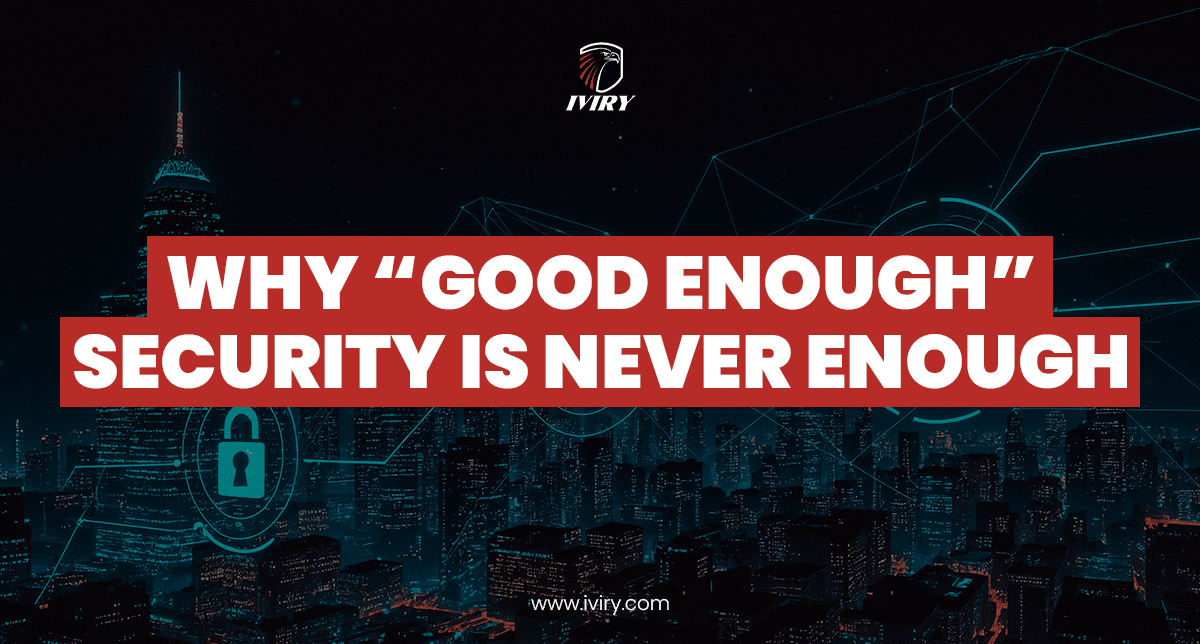In cybersecurity, “good enough” is never actually good enough. Too often, organizations take a minimalist approach to security, investing in the basics but stopping short of a complete strategy. Maybe they deploy antivirus software, install a firewall, and assume they are safe. On the surface, these steps may feel like sufficient protection. In reality, partial defenses create a false sense of security that can be even more dangerous than having no defenses at all.
The cost of complacency is high. Attackers thrive on weak spots, and if even one area of your environment is overlooked, that is exactly where they will strike.
The Illusion of Security
The problem with “good enough” security is that it often focuses on appearances rather than outcomes. Leaders may feel reassured that they’ve “checked the box” with a few tools or policies, but they haven’t addressed the full spectrum of threats.
Consider a business that implements password requirements but ignores multi-factor authentication. Or one that runs endpoint protection but neglects employee training on phishing emails. Or a company that prioritizes customer-facing security while leaving internal systems exposed. Each of these gaps represents an open door for attackers.
What looks secure from one angle is often vulnerable from another. Cybercriminals only need one weak point to succeed.
The Hidden Costs of Complacency
Partial protection does more than create technical risks — it creates financial and reputational risks as well.
A single breach can cost millions of dollars in recovery expenses, regulatory fines, and lost business. The reputational damage can be even harder to repair. Customers and partners want to work with organizations they trust. Once that trust is broken, it can take years to rebuild.
The most costly part of complacency is that organizations often don’t discover their vulnerabilities until it’s too late. By the time a breach is detected, attackers may have already stolen data, compromised accounts, or disrupted operations. The “savings” from cutting corners on security evaporate instantly in the face of an incident.
The Case for Comprehensive Protection
Cybersecurity is not about doing the minimum. It is about building resilience across every layer of your organization. That means securing not just the obvious systems, but the hidden ones. It means preparing your people to recognize threats, not just your machines. And it means monitoring continuously — not just performing an annual audit and assuming the job is done.
True protection is layered, proactive, and evolving. It addresses not only today’s risks but tomorrow’s threats as well. Anything less is an open invitation to attackers.
How Iviry Helps Organizations Move Beyond “Good Enough”
At Iviry, we help organizations step out of complacency and into resilience. Our solutions go beyond compliance checklists to deliver real, sustained readiness. Through our proprietary CyberMentum™ platform, we guide clients from assessment to remediation and ongoing monitoring. With Managed Support Solutions, we integrate IT operations and compliance sustainment, ensuring that security strengthens rather than slows down business.
We also recognize that people are the frontline of defense. That is why we provide targeted training and awareness programs that equip teams to recognize and respond to threats like phishing and social engineering.
For us, “good enough” is never the goal. Readiness, resilience, and reliability are the standard.
The Price of Partial Protection
In the cyber world, attackers never aim for the strongest point of defense — they aim for the weakest. And if your strategy is incomplete, they will find that weakness.
The hidden cost of “good enough” security is that it leaves you fully exposed where it matters most. In contrast, organizations that invest in comprehensive, adaptive security not only reduce their risk but also gain confidence, credibility, and a competitive edge.
Cybersecurity isn’t about doing enough to get by. It’s about doing what it takes to truly be secure. And that requires moving beyond “good enough” — because when it comes to protecting your people, your data, and your mission, nothing less will do.





